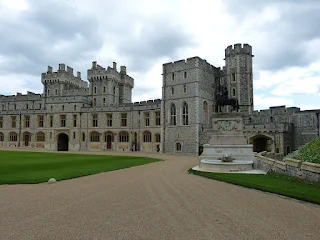"The British Contribution to India's Constitution: Shaping the Foundation of Modern India"
The Influential Role of the British in Shaping India's Constitution: A Journey of Contribution
British Contribution to India's Constitution,
Formation of Indian Constitution,
Role of British in Indian Governance,
Explore the significant contributions made by the British in the formation of India's Constitution. Discover how their influence, governance, and legal systems played a crucial role in shaping the foundation of modern India's constitutional framework.
Introduction
The formation of India's Constitution stands as a remarkable achievement in the nation's history. While the process was primarily driven by Indian leaders and visionaries, it is essential to acknowledge the noteworthy contributions of the British in shaping the constitutional framework. This article delves into the influential role played by the British in the formation of India's Constitution, highlighting their contributions and the impact of their governance and legal systems.
Historical Background
The British colonization of India, which lasted for nearly two centuries, left an indelible mark on the country's political, administrative, and legal systems. The introduction of British governance profoundly influenced India's socio-political landscape and sowed the seeds for the eventual formation of an independent nation.
Legal and Administrative Systems
One of the significant contributions of the British was the establishment of a robust legal and administrative infrastructure in India. The British introduced a modern legal system, incorporating elements from their own common law tradition. This system provided a foundation for the rule of law, judicial procedures, and the protection of individual rights, all of which became crucial pillars of India's constitutional development.
Influences on Constitutional Concepts
The British governance model and its constitutional concepts played a vital role in shaping India's own constitutional principles. Concepts such as the separation of powers, parliamentary democracy, and the rule of law were adopted and adapted from British constitutional traditions. These concepts provided a solid framework upon which the Indian leaders built their vision for an inclusive and democratic nation.
Constitutional Expertise and Guidance
During the process of drafting India's Constitution, the expertise and guidance of British legal scholars and constitutional experts were sought after and highly valued. The Constituent Assembly of India, responsible for drafting the Constitution, benefited from the knowledge and experience of British jurists, including Sir B.N. Rau, who served as the Constitutional Advisor to the Assembly. Their contributions helped shape the constitutional provisions and ensure a comprehensive and well-crafted document.
Protection of Individual Rights
The British legacy of protecting individual rights and liberties had a profound impact on India's Constitution. The Indian leaders were influenced by the British Bill of Rights, Magna Carta, and other legal documents that championed fundamental rights. As a result, India's Constitution enshrined a comprehensive set of fundamental rights that guaranteed individual freedoms, equality, and social justice.
Legacy and Modern India
The contributions of the British in shaping India's Constitution have left an enduring legacy. The constitutional framework inherited from the British, combined with the aspirations of the Indian leaders, laid the foundation for modern India's democratic and inclusive governance. The constitutional provisions on fundamental rights, separation of powers, and parliamentary democracy continue to shape India's legal and political landscape to this day.
Conclusion
While the formation of India's Constitution was primarily a product of the vision and struggles of Indian leaders, it is crucial to recognize and appreciate the contributions of the British in shaping its development. The British governance, legal systems, and constitutional concepts played a significant role in providing the framework upon which India's Constitution was built. Understanding this historical context helps us appreciate the complexities of India's constitutional journey, highlighting the amalgamation of diverse influences that have shaped the nation's democratic principles and aspirations.




Comments
Post a Comment